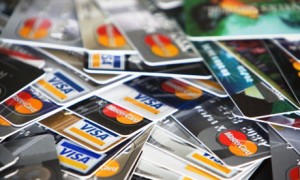Taxes may be paid with credit cards, if House bill passes muster

“The use of credit cards or debit cards will become an acceptable way and a convenient way to pay taxes,” said Parañaque Representative Eric L. Olivarez, author of House Bill 5095.
In an explanatory note, the congressman said allowing the use of credit cards or debit cards for the payment of taxes could help curb tax evasion, as people with no cash on hand could settle their obligations through credit.
“Tax evasion will be lessened if people will have an alternative, [which] is delayed payment secured by the credit card system,” Olivarez said.
He said the government would have no problem collecting from every taxable individual what was due of them as it could directly collect from the issuing bank or financial institution.
“The bank, on the other hand, will have no trouble collecting the accumulated credit card debt from its individual cardholders because it has been expertly doing this practice for decades now,” Olivarez said.
Article continues after this advertisementUnder his proposal, the taxpayer may not use or utilize the credit cards or debit cards issued under the name of a person other than himself for the payment of his taxes.
Article continues after this advertisementThe bill mandates the Bureau of Revenue to select companies to process credit and debit cards on its behalf, and these companies may charge taxpayers a reasonable and regulated amount as processing fee.
The measure also disallows any person from using or disclosing any information relating to credit or debit card transactions other than for purposes directly related to the processing of such transactions, or the billing or collection of amounts that have been charged or debited.
Exception to this confidentiality rule is when debit or credit card issuers or others acting on behalf of such issuers use or disclose such information for purposes directly related to servicing an issuer’s accounts.
“Likewise, they may disclose such information for purposes directly related to statistical risk and profitability; transferring receivables, accounts, or interests therein; auditing the account information and complying with the laws of the Philippines or any valid court order pursuant to a criminal investigation,” Olivarez said.
But when for any reason the use of credit cards or debit cards in the payment of taxes proved to have been done fraudulently or in contravention or circumvention of any law especially to evade tax obligations, the taxpayer shall be liable with the issuing bank for the actual and complete payment of taxes due.
“This is without prejudice to the filing by the BIR of civil, criminal and administrative charges against any person or persons conniving for the purpose of evading taxes due,” Olivarez said.
RELATED STORIES
BSP issues new credit card restrictions